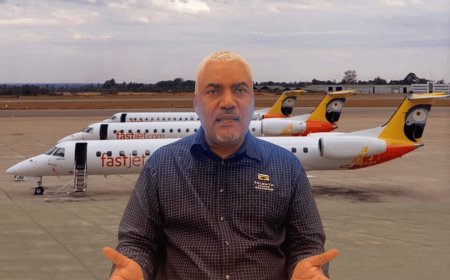Nyusi admits failure in creating jobs for youth
During his inauguration for the second term in January 2020, President Filipe Nyusi promised the Mozambican society, particularly the youth, the creation of more than 3 million jobs.
However, in his speech at the opening of the II National Conference on Social Dialogue in Maputo, Nyusi revealed that in the last five years, the country has generated just over 1.3 million jobs, far below the planned target.
“The private and public sectors together generated 1,364,204.49 jobs, including permanent, temporary, and seasonal,” Nyusi said, clearly admitting that he did not meet the goal he set when he was re-elected in 2019. He justified the failure to meet this promise with the economic situation that affected companies' activities and their ability to cover salary costs.
“Employers have faced problems over the past few years. Some companies had to completely shut down their operations,” Nyusi emphasized.
Earlier this week, Oswaldo Petersburgo, Secretary of State for Youth and Employment, appeared on the RM program "Cartas na Mesa" to promote the government's major achievements.
Strangely, in over an hour of conversation, he did not mention the three million jobs, the objective for which the institution he leads was created in 2020.
Petersburgo diverged into programs with appealing names (EMPREGA and ACREDITA EMPREGA) but without presenting numbers that support any impact of these programs in promoting employment.
With only a few months left in the mandate, Petersburgo mentioned just 50,000 jobs forecasted in the EMPREGA program, expressing reluctance and blaming constraints linked to COVID-19 and financial restrictions.
“This goal can be achieved. The program could have had different momentum and shown some results in 2023 and 2024, but we cannot forget that we had COVID-19, cyclones, and financial constraints,” he philosophically pointed out.
The failure to meet the government's main goal reveals that the SEJE programs and other executive initiatives represent an authentic scam, similar to SUSTENTA by Celso Correia. Almost all spend most of their budget on charm campaigns rather than achieving the desired social intervention.
False promises
During his inauguration, Filipe Nyusi promised to create and lead an office to address the unemployment problem. "This office will have the mission to advise me on implementing initiatives to create employment opportunities. Therefore, we need to create a structure led by myself with a focus on employment," said Filipe Nyusi in 2020.
In forming his government, Nyusi showed signs of wanting to fulfill the promise by creating SEJE and handing it over to Oswaldo Petersburgo. The new institution was practically born with a golden cradle, receiving 75 million US dollars donated by the World Bank to promote job creation.
However, SEJE, through its programs and the National Employment Institute, failed to fulfill Nyusi's promise. The Head of State did not raise the flag of the three million jobs alone; his entire executive did.
In March 2020, the Council of Ministers announced the proposal of the Five-Year Plan, focusing on creating three million jobs.
"Three million jobs are expected, and there are conditions for these numbers to be achieved," said Filimão Suaze, spokesman for the Council of Ministers at the time. SEJE organized the High-Level Meeting on Employment, launching the “Action Plan for Employment Promotion Policies” to tackle the unemployment rate, which was around 24%.
The then Prime Minister, Carlos Agostinho do Rosário, presented a program promising to reduce unemployment in the country. “We are implementing the employment policy that clearly defines the paths to follow to achieve the set goals,” he stated.
In 2022, Osvaldo Petersburgo still insisted on the goal of three million jobs, despite the unfavorable reality. Analysts considered the goal unrealistic, as many young people remained unemployed.
More than four years later, the goal is far from being achieved, the promise remains a mirage, and the topic has become taboo in government circles.
Speaking to TORRE.News, the Mozambican Workers' Organization (OTM) states that unemployment in the country tends to increase, especially among young people, who represent more than 50% of the Mozambican population.
Data from the latest Family Budget Survey (2022) reveal that unemployment affects about 18.4% of the working-age population, with the most critical levels recorded in the city and province of Maputo.
Mozambican civil society had already foreseen the collapse of the government's goal, having conducted an analysis showing that in the first two years of the mandate, 443,924 jobs were created. At best, by 2024, 1,109,810 jobs could be created.
In an election year, if Mozambicans were prepared to exercise citizenship as happens in other regions, the ruling party would pay dearly for unfulfilled promises.





















